Did Boruto “kill” Naruto? The Impact of Boruto on the Narutoverse
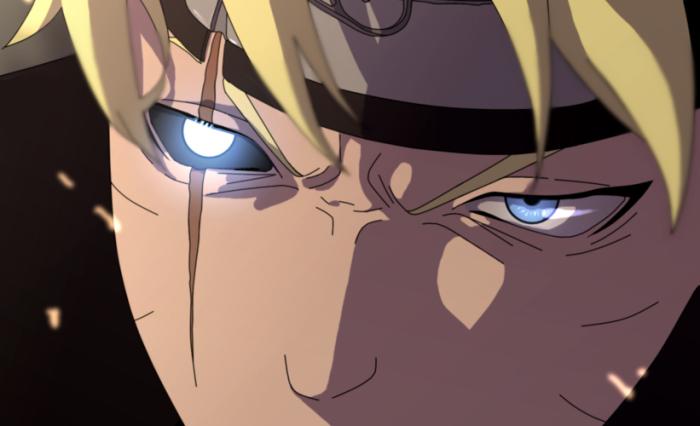
Evolution of the Narrative of Boruto: Naruto Next Generations
Naruto was an anime that started in 2002 in Japan and 2005 in the US that followed the adventures of the titular character, Naruto on his quest to become the Hokage. 1 This anime split into two parts in order to tell the whole story. When Naruto ended in 2007, Naruto Shippuuden started. This part of the anime dealt with an older cast of characters and more mature topics, such as war and philosophy. Naruto Shippuuden ended in 2017, and the series creator took a break from creating new stories for a while. 2
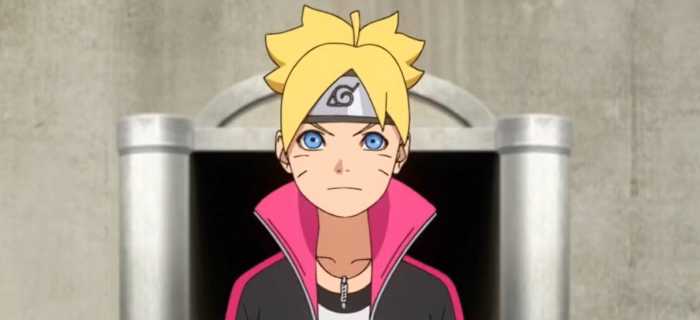
Due to the break, many fans of Naruto did not expect a sequel series, despite the movie Boruto: Naruto the Movie setting up an interesting look at the life of those in Konoha after its rebuilding, with Naruto leading them as Hokage. Initially, Kishimoto denied requests to make a sequel series to Naruto, until his closest assistant was assigned to make Boruto, per his insistence. 3 Following the start of the Boruto manga, Shonen Jump announced the Boruto anime on December 16th, 2017. 4 The introduction of Boruto as a sequel series is examined below. There are potential spoilers for the Boruto anime below, and spoilers for the Boruto: Two Blue Vortex manga in some of the reference links.
The Introduction of Boruto as a Sequel Series
Boruto: Naruto Next Generations is set fifteen years after the end of the events of the Fourth Ninja War. It takes place after the events of the Boruto: Naruto the Movie. The anime itself follows Boruto, Naruto and Hinata’s son, with his insistence that he is nothing like his dad while ironically painting the Great Stone Faces. The anime runs in a manner that adds parallel stories to the manga, until an intersection point happens. 5
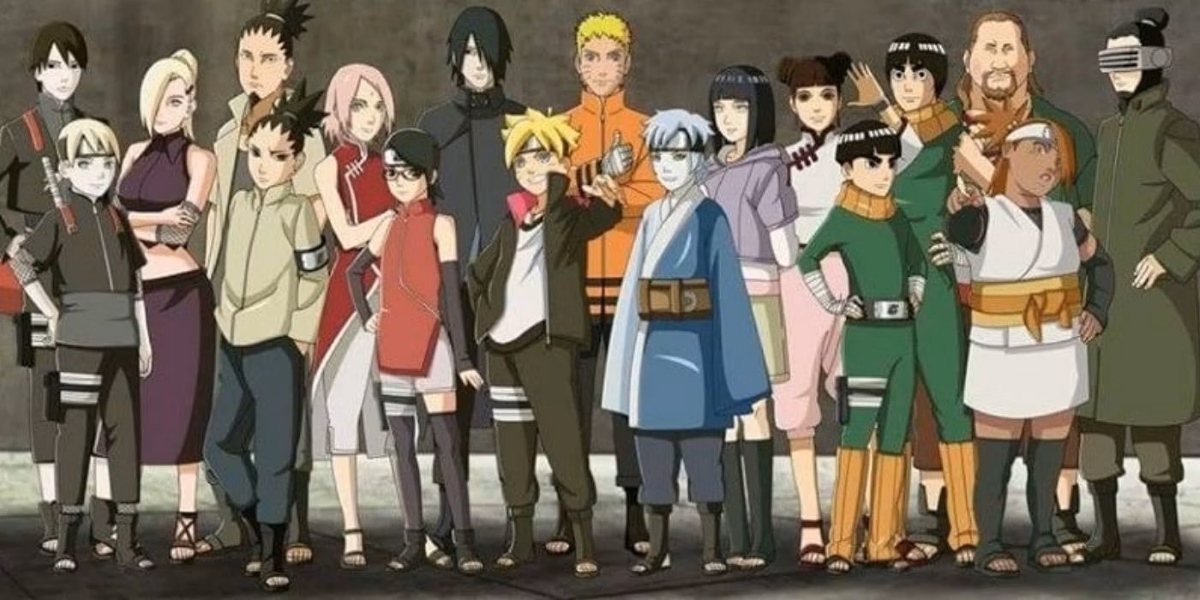
By doing this format, on the one hand, the anime does not have to wait for the manga to release to make episodes, however, it can create a lot of what people might consider filler episodes. Because of the problem with filler episodes, it can be harder to understand what parts of the Boruto anime is canonical to the manga. However, most of these filler episodes allow the viewers to have a better picture of how the main characters act and interact, though it does tend to make the plot of Boruto harder to follow during the main conflicts that appear in the manga. Despite this, it is easy to see that the world has evolved in Boruto, which is important to cover in the next section, so that a better understanding of how the world of Boruto impacts the character arcs and storylines can be formed.
The Evolution of the World, the Passage of Time and the Changing Dynamics of the Ninja World
Within the world of Boruto, it becomes immediately apparent that things have changed in the five villages since Naruto took on the title and responsibilities of Hokage. Konoha is much bigger than it appears in Naruto, and features less of a small village feel and more of a bustling city with shops and conveniences on every street. The new Konoha makes use of electricity to power its train system, and technology advanced to the point that laptops, flat screen TVs, and handheld gaming systems exist, whereas the old version of Konoha that Naruto grew up in featured TVs and radio systems by comparison. 6
The characters that viewers came to love in Naruto have aged to appear in their 30s. Most characters, like Naruto, Hinata, Sakura, Sasuke, Ino, Chouji, and TenTen, to name a few, are married with families of their own. Their oldest children appear to be around the age that they were when they were in the Ninja Academy. 7 In addition to this, the old guards’ children are free to learn about more than ninjutsu in their world. There are a few episodes designed to show that the main cast and side characters of Boruto can opt to take internships in something outside of the Ninja Way. In particular, this is most evident with Himawari Uzumaki, Boruto’s sister. 8 Other iconic characters, like Shino, have become teachers in the academy.
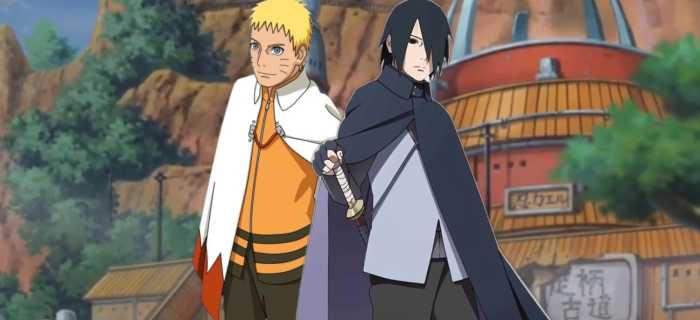
In addition to these changes in the ninja world, children are allowed to find their own ninja way in a more tailored, less dire curriculum, as evidenced by the Chunin Exams. There is no Forest of Death part of the test, in the sense that participants are expected to die during it, and the focus of the exam is on keeping the children away from harm, even in the tournament section of the test. 9 The children in Boruto enjoy more of an interconnected world than their parents did as well, with the other four Kage in talks about national affairs. This notion is a far cry from how politics appeared in Naruto, where the accepted way of handling things involved espionage and distrust until a common understanding took root. 10 Given that these dynamics have changed for the ninja world, the way that character development progresses is also different from Naruto, which is discussed next.
Character Development in Boruto
Character development happens more quickly in Boruto than it did in Naruto, to an extent. More of Naruto‘s character development happened over multiple arcs and filler arcs, whereas character development in Boruto can happen in a few episodes, as Boruto learns a lesson or side characters go through their own trials. These trials are a lot lower stakes than those encountered in Naruto. For example, Chouji’s daughter, Chocho, when learning the Butterfly Technique, tries to get onto a popular TV show that she adores, but, she believes that her body type is not what she needs to succeed at her goal and learns to accept her body and herself as she is in the end. 11
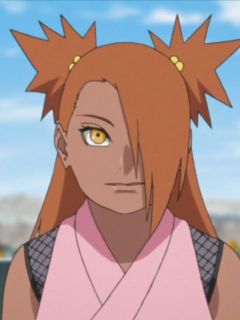
Most of the character development in Boruto progresses like the scenario above, whereas most of the development in Naruto happened through training arcs and fighting scenes. The character development differences in Boruto lead to a slower pace in the anime, specifically.
However, the development of more familiar characters from the Naruto series continues in Boruto, which is examined in the following section.
The Growth and Development of Familiar Characters from the Naruto Series
Naruto is arguably one of the characters in Boruto that has the most continued development in the series. This development happens due to his relationship and conflict with his son, which is covered in depth in a later section. Naruto’s development in Boruto is centered around balancing his duties to the Leaf Village citizens and his relationship with his family. The Uzumakis made a point to not disclose how discriminated by the village Naruto was, given the way that Boruto reacts to his father’s constant absence in his and his sister, Himawari’s, life. 12 Despite this absence, it is proven a couple of times in the show that Naruto does what he can to be there for his children, especially when they are in danger.
Similarly, Sasuke goes through some character development in Boruto. Notably, he agrees to train Boruto, who refuses to train with Naruto. Sasuke spends most of his time away from Konoha, investigating the threat against the world in Boruto. He also trains his daughter, Sarada, but, they also have a strained relationship, due to his time away. 13 More on these relationships are discussed below.
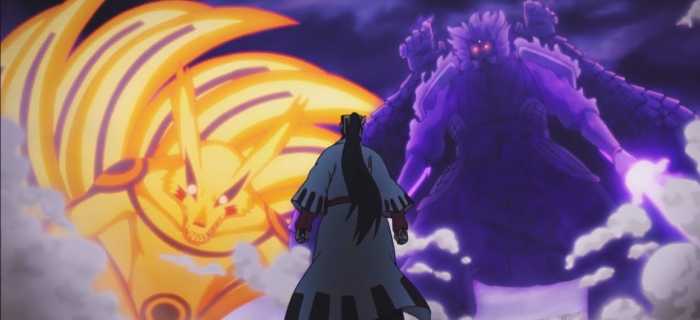
Orochimaru also develops into something of a caring parent. He keeps experimenting on clones, but, there is at least one version of Mitsuki that he seems to care for. At least, this is a far different from how Orochimaru presents himself for much of Naruto as a villain. He seems content to help the Leaf Village advance ninja techniques and research, though he is constantly on watch in his lab in the village. 14
By contrast, Sakura and Hinata settled into their roles of a nurse and the wife of the Hokage, respectively. The two women are not actively shown in fighting scenes much, aside from when Sakura trains her daughter, Sarada. 15 Hinata, meanwhile, seems content to take care of Himawari and their house. She is inferred to still fight, when she is shown incapacitated after fighting against a major threat to the village, but this is not shown on screen. 16
The Impact Character Development Has Had on Boruto‘s Overarching Narrative
From the older Naruto characters to the new characters in Boruto, the development has quite the impact on the story’s narrative. In fact, it can be argued that character development is at the core of Boruto, rather than watching Naruto progress in his fight to protect Konoha as it was in Naruto. As mentioned earlier, particularly for the anime, Boruto handles character development and hardships in a more gentle, slice of life manner. This more laid back manner of presenting events in the series can be a bit of a departure from the higher stakes that take place in Naruto. However, the slower pace of the anime does allow for more nuanced and wide spread character development, in a sense.
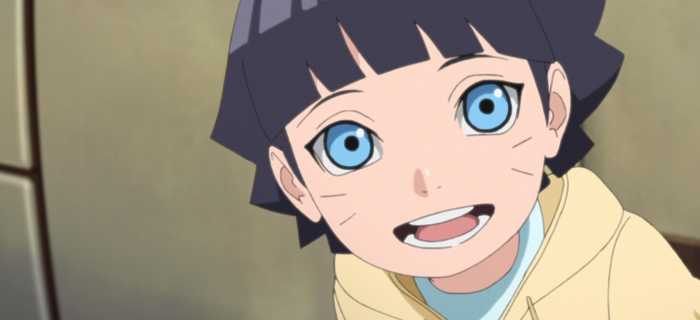
Despite the change of pace in Boruto, the viewers can see traits from the familiar characters from Naruto reflected in the next generation. For example, Boruto himself is shown as a bit hyperactive, though it is tempered by his ability to think about situations in depth before he acts. He can be fired up, much how Naruto got during his story, but usually only when he feels truly challenged, or high stakes are at play. 17 Similarly, Himawari displays above average ability in her Ninja Academy assessment day and is shown to be gentle and kind, though she chooses, at that point and time, to not enroll in the academy. 18
Furthermore, Sarada appears to combine both of her parents’ ability to think through situations and keep her cool while having great chakra control and super strength. She has more of a sure of herself, cool personality, which often counterbalances Boruto’s impulsiveness when it appears. 19 The final main character of the New Team 7, Mitsuki combines his parent’s curiosity about how people work with a methodical mindset that might not share the same ethics of his other teammates. 20 These developments of the team’s character traits provides great entertainment when battles do appear in the show. Even more minor characters in other teams show how they develop their character, such as Metal Lee, for example. Battle when too many eyes are on him makes him anxious, but he takes the time to try and overcome that within an arc, which gives that narrative arc a warmth and heart, similar to Naruto‘s filler arcs. 21
These character traits of the main characters also provide a push forward for the narrative, if a more interpersonal one, which includes emerging conflicts as well. Boruto, based on the character developments examined here, is more about learning how to work together for the betterment of the community around them. This theme often comes into conflict with the older generation of ninja, which is discussed below.
Intergenerational Conflict
Intergenerational conflict is simply defined as “a conflict situation between teenagers and adults or a more abstract conflict between two generations, which often involves prejudices against another generation. Furthermore, intergenerational conflict describes cultural, social or economic discrepancies between generations”. 22 Intergenerational conflict in Boruto mostly comes about through Boruto not agreeing with Naruto on most of his ideals. For example, Boruto struggles to understand why his dad is away from him as much as he is. He resents the fact that Naruto has other, more pressing responsibilities. It is not until Boruto goes back in time with Sasuke to Naruto’s childhood that the young ninja begins to understand why his dad is the way he is now. Boruto has little to no problem using technology to enhance his ninja abilities, whereas Naruto believes using technology in such a way will not benefit ninja, but rather hinder them in building their strength. 23
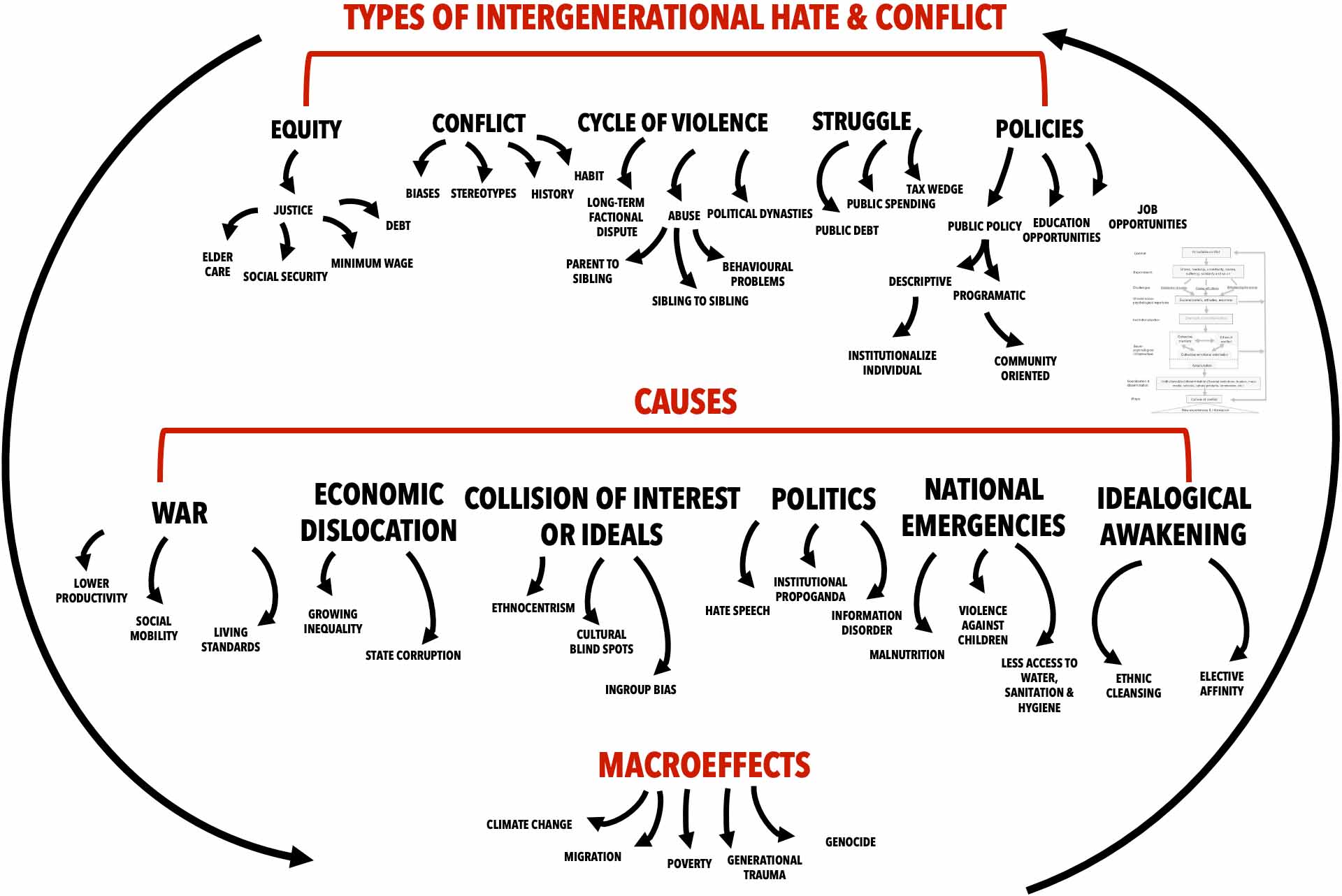
This narrative thread shifts slightly once Boruto is marked with his karma and can be taken over by Momoshiki’s power and personality. Boruto becomes colder than Naruto ever did in this state, and does not hesitate to end a threat. Unlike Naruto with Kurama, Boruto does not mind using his Ototsuki powers. Further conflicts and tensions are examined next. 24
Conflicts and Tensions Between the Older Generation of Naruto and the New Generation of Boruto
Boruto, Kawaki, and Naruto have a lot of ongoing conflicts and tensions among them. Boruto feels obligated to keep his dad in check, whereas Naruto seems to make really impulsive decisions or do things due to his responsibility as Hokage alone, rather than seeing the bigger picture, at least according to Boruto. One of these decisions includes formally adopting Kawaki into his family. 25 More tension is created between Boruto and Naruto because of the sudden new addition to the family, especially when Kawaki seems to be able to have a connection with Naruto that Boruto never experiences.
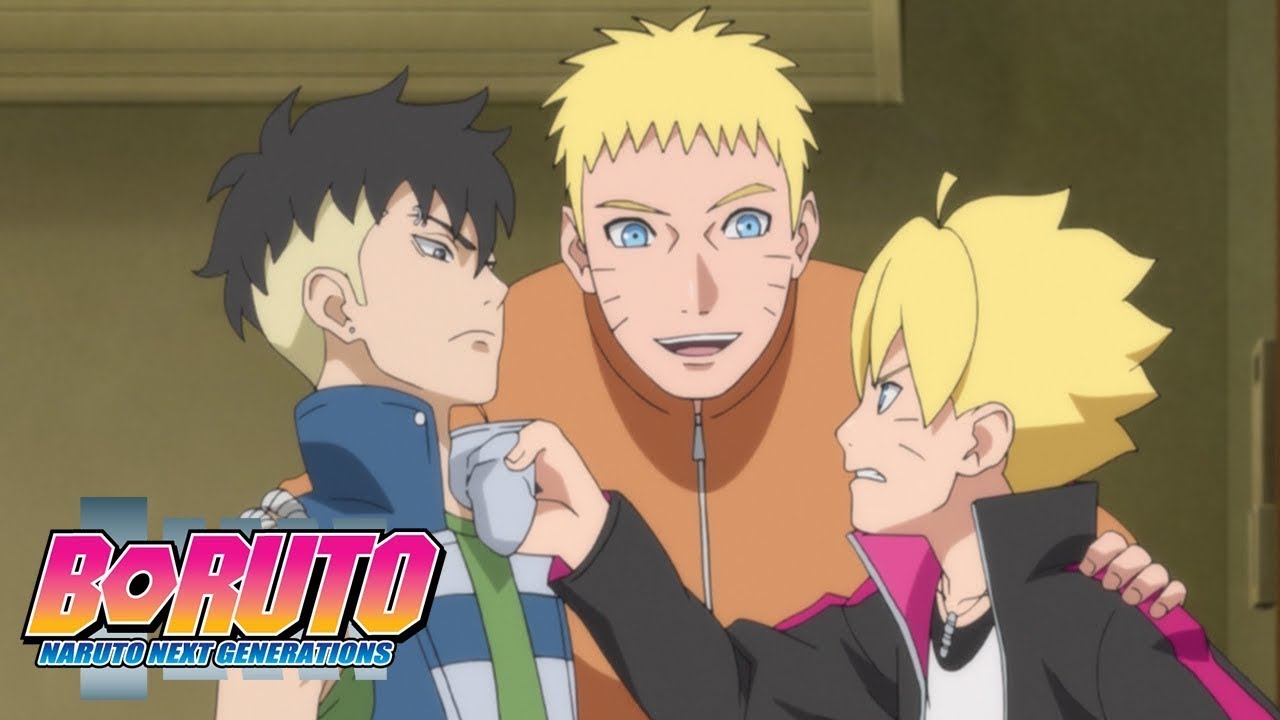
Of course, the source of this tension among the three characters is not inherently Kawaki. Rather, the source of this tension is Kawaki’s trauma, which drives the plot forward by introducing Jigen and the experiments and abuse he caused other children like Kawaki. This tension resolves when Boruto and Kawaki set aside their differences and begin to accept each other as siblings with the combined goal of getting the bottom of Jigen’s cruelties, and making sure they cannot happen again. 26Once this resolution is reached, Boruto and Kawaki start to try figure out more about the Otsutsuki in general.
The rise of the Otsutsuki clan as an antagonistic force is another source of tension and conflict for Naruto and Boruto. Naruto wants to keep Boruto away from them, because he does not want Boruto to encounter danger that might be too much for Boruto to handle. He cautions Boruto to be careful, but Naruto is ultimately happy to see that he and Kawaki are getting along. Boruto, of course, wants to know more about what is going to happen to him.
Another undercurrent conflict in Boruto surrounds what happened to Konoha in the past, versus now, versus what has been hinted at to be its future. This conflict is never explicitly shown, but it can be felt by the viewer, particularly if they have seen Naruto. In Boruto, the village’s past is mentioned briefly, but the scars of the Fourth Shinobi War are still felt. They show any time there is a new threat, and cracks within the five nations union are briefly seen. However, most of the village’s focus is on the younger generation and their ability to thrive in a time of peace. This peace being threatened also pushes the narrative forward. Also, thanks to the very opening of the anime, the viewers know that the village of Konoha is destroyed once again, with both an older Kawaki and Boruto about to fight over the future of the shinobi as a whole. This hinted destruction heightens the tension around Konoha in the background of the events of the anime. 27 All of these conflicts and this tension is brought about by a clash of ideals, values, and perspectives that are discussed below.
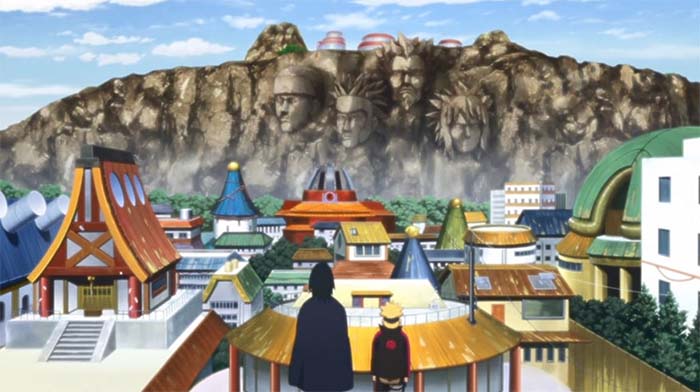
Clashes of Ideals, Values, and Perspectives and Impacts on the Narrative and Character Growth
A major clash of ideals centers around Naruto and Boruto. For example, Naruto accepts where Boruto rejects. Naruto accepts Kawaki after hearing his story, but Boruto remains skeptical of Kawaki until he proves he is not a threat to his family. In regards to Boruto’s dad’s absence, while he understands why the absence exists, but he seems to reject, or, at the very least reject what Konoha stands for from his dad’s perspective in general. In one of the more tense moments of the anime, Naruto accepts using Baryon Mode and effectively sacrifices his life as well as Kurama’s to protect Boruto from more Otsutsuki invaders after they kidnap him and nearly kill Boruto and Kawaki in front of him. Boruto, on the other hand, does not want his dad to accept his fate.
Similarly, Sasuke tries to foster understanding where Sarada is decisive. Sasuke is absent from Konoha for most of the Boruto anime, but he is aware of the very present threat of the Otsutsuki. Instead of fostering a rivalry between Boruto and his daughter, similar to the one that he and Naruto shared throughout much of the Naruto anime, he attempts to teach understanding to Sarada, though he is unsure of how to receive his daughter’s wish to be present in her life. He is quiet, but straightforward, and Sarada is louder, like Sakura, and decisive in what she wants, to the point that she may react to things too quickly or see her father as not decisive enough in his own affairs. A lot of the tension between Sarada and Sasuke comes from his seeming lack of concern as to how his family handles his long periods of absence, though this concern is later addressed, to an extent, in an episode or two.
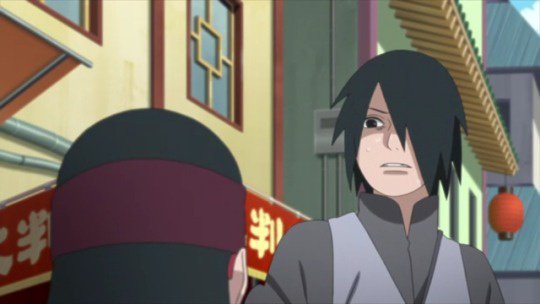
Mistakes or misunderstandings of the past influence the main threat in Boruto, which Kaguya’s defeat in Naruto Shippuuden alludes to a further generational conflict. Kaguya, despite being a higher being in the Otsutsuki clan falls in love with a human. Instead of completing her mission to eat the chakra seed that she planted into the planet, Kaguya decides to allow humanity to progress, which gives birth to the ninja and ninjutsu. This reveals a multigenerational conflict within the Otsutsuki clan themselves.
In a different way, Naruto’s silence about the struggles he faced in the past causes Boruto to resent the fact that his dad works so hard for the village, and this possibly causes deeper issues that Konoha has had regarding its treatment of Naruto to become completely forgotten. Sasuke’s indifference about his absences causes a lack of defense in the village, in terms of having another powerful ally to deal with the Otsutsuki threat. His indifference also means that Sarada is not as in touch with her Uchiha kekkeigenkai as much as she arguably should be. These issues become more apparent when the New Team 7 uncovers the Otsutsuki’s real plan for the ninja, as they are reluctant to tell the adults in the situation about what they learned at first.
Continuity and Legacy
The topic of continuity and legacy comes up when examining the Boruto anime. Unlike the manga, the anime tends to include multiple arcs of character development that can derail a lot of the show’s continuity with the manga. The continuity of Boruto in regards to the events of Naruto‘s anime makes sense. The anime clearly places itself as a sequel to the events of the end of Naruto Shippuuden by exploring more of the Otsutsuki in terms of their goals with the world of Naruto. The idea of legacy, on a broad spectrum, is that Boruto’s generation are carrying on Konoha’s Will of Fire and are living out dreams their parents might have had, but had not been able to achieve in their time. The deeper aspects of Boruto‘s continuity and legacy are explained below.
How Boruto Maintains Continuity with the Narutoverse While Forging its Own Path
The main way that Boruto maintains continuity with the Naruto verse is through the older characters, their actions, and the main villains within Boruto. These aspects of the anime show that people and Konoha are moving forward in time. The continuity continues in the feelings that are still recovering from, even fifteen years after the Fourth Shinobi War. However, in terms of continuous plot, the Boruto anime can be a bit confusing and slow in the pacing department, which will be addressed in the fan response section.
While this continuity is clearly present in Boruto, the anime also managed to forge its own path through its story. Immediately upon his introduction, it is clear that Boruto is not his father. He has absolutely no desire to become the next Hokage, like some in Konoha suspect he might. Likewise, Sarada is not content to sit on the sidelines of events, and makes her intent to become Hokage known at the outset of the show. Boruto further becomes removed from the perception of his dad when he is shown to think on his feet and outsmart his opponents. He doesn’t struggle with unlocking his elemental affinities, and, he is okay with cheating to be reprimanded and recognized by his father, as stated previously. These character arcs develop more widely as well, as the viewer gets introduced to more ninja teams as a unit and on an individual level, due to filler arcs.
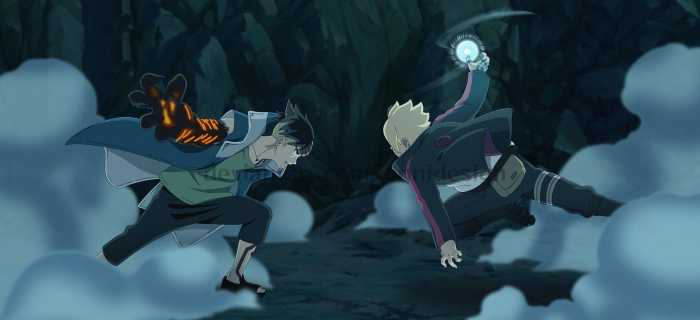
In addition to these aspects, Boruto does not always portray the hero in Boruto. There are quite a few times where Boruto acts within his own interests as opposed to what is right. He is not as trusting as his dad, nor is he seeking society’s acceptance as Naruto was at his age. These specific aspects of Boruto’s personality and character help drive the show away from becoming a retelling of Naruto. Some of these aspects of personalities of certain characters speak to the legacy of Naruto, which is examined next.
How the Series Pays Homage to its Predecessor and Honors the Legacy of Naruto While Evolving Lore
Boruto pays homage to Naruto and honors its legacy by keeping a lot of the same feel from the original Naruto, but with less life or death stakes. The anime keeps things like showing that Boruto acts out like Naruto did, from the very beginning of the series. A lot of the energy of Boruto does mimic Naruto’s, though he would never admit it. The idea of fostering and finding one’s own Ninja Way has also been kept, even if it is never outright said. The viewer gets the sense that the peace that Naruto fought for within both himself and for the ninja world is being continued through Boruto.
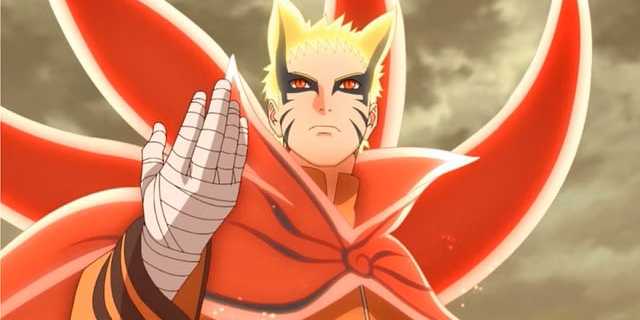
However, that peace appears to be not as stable as it could be, once the Otsutsuki make their move against Konoha and Naruto. The anime also keeps a lot of the themes of protecting what matters the most, family, and believing in yourself through these moments. The lore expansion in Boruto comes from the Otsutsuki, a largely unknown clan outside of certain Naruto movies, and the changes to Konoha. 29 For example, instead of being a stigma, Kurama now has a line of popular merchandise that is celebrated. In addition, to this, Baryon Mode shows that Naruto still works to find new ninjutsu techniques, despite being older and adds in a facet of lore for the Tailed Beasts. One could make the argument as well that the descendants of prominent ninja clans also carry on their family’s legacy, even if it would be in different ways from the past, in Boruto.
Despite the legacy that Boruto calls back to Naruto, and the continuation of the story of the ninja, the impact on the fanbase is an important, and telling, facet of the anime. The reactions of the fanbase to the Boruto anime as well as the impact that the anime had on said fanbase is covered below.
Boruto‘s Fanbase and its Impact Within the Naruto Fanbase
Boruto‘s impact on the fanbase of Naruto was mixed, at least in countries outside of Japan. A lot of audience members do not see the point of Boruto, especially the anime, to exist. They tend to see it as the industry not letting a cash cow end. Others see that Boruto is fine as a sequel, and those interested in the characters tend to like the anime. Specifically, the fans of Boruto like seeing how the next generation of shinobi affect the world and how Naruto maintains his peace. That said, the deeper impact of Boruto specifically within the Naruto fanbase deserves to be explored.
The Naruto fanbase seems to be split in how it receives Boruto, especially when the anime is considered. Some see Boruto as the reason why Naruto will never end. Others think that Boruto creates a giant plot hole in the Narutoverse. Still other fans think that Boruto is not as important as Naruto in terms of the impact it made on anime fans. 30
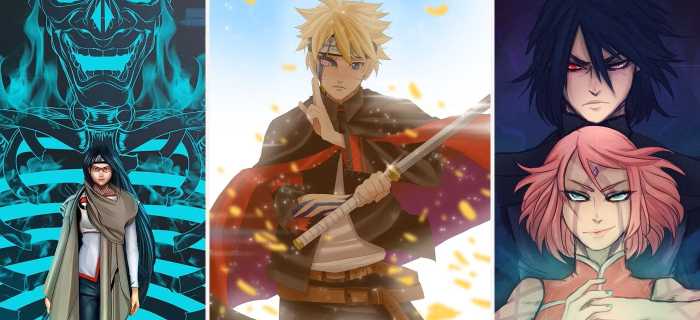
However, it is important to ask whether fans of the Boruto series likes the Boruto anime. In addition to this, it is important to consider less Western based opinions on the anime. In Japan, Boruto is more popular than in America. Specifically, the anime is rated as “good”, according to Parrot Analytics, with it being 5.3 times in demand as the average Japanese TV show. 32
Fan Reception
Fan reception is, like the reception in the Naruto fanbase, split. At first, Boruto showed some promise, especially with its opening suggesting that Boruto was not the hero in the anime. Naruto may very well be deceased, and Konoha had been destroyed on screen. Once this confrontation is set up, the whole anime is delivered in a flash back, which some fans do find jarring. Strengths and weaknesses of the anime are explored in the following section.
For now, it is important to dissect the different fan receptions of the Boruto anime. While some fans, as mentioned previously, find Boruto as unnecessary to the larger Naruto verse, others find the anime to be enjoyable. Japanese fans enjoy the anime and continue to watch it. However, many Western fans think that Naruto and Sasuke had been “nerfed” in Boruto. 33

Strengths and Weaknesses of Boruto’s Anime
The strengths of the Boruto anime are numerous. There are moments where the anime is fast paced, which is balanced out by slower, slice of life moments. The animation itself is highly reminiscent of Naruto‘s style, but is done in a cleaner lined, modern style. The character development in the anime is a bit more fleshed out than in the first arc of Naruto as well, if the viewer does not mind sitting through a lot of filler. However, this strength of the anime is also arguably one of its weaknesses.
The main weakness of the anime has to do with the pacing of it. A lot of the plot is overburdened by filler arcs, which can make it harder to follow the main plot of the story, which is confirmed and vocalized by the fanbase. 35 This filler came from waiting for the manga, which releases monthly, to produce content. 36 Unfortunately, it also means that the anime diverges from the manga quite a bit, which a lot of fans find unsavory. Also, some of the animation is inconsistent between filler arcs and manga plot related arcs. 37 The anime can feel bloated as a result, and that makes it harder to watch the whole way through.
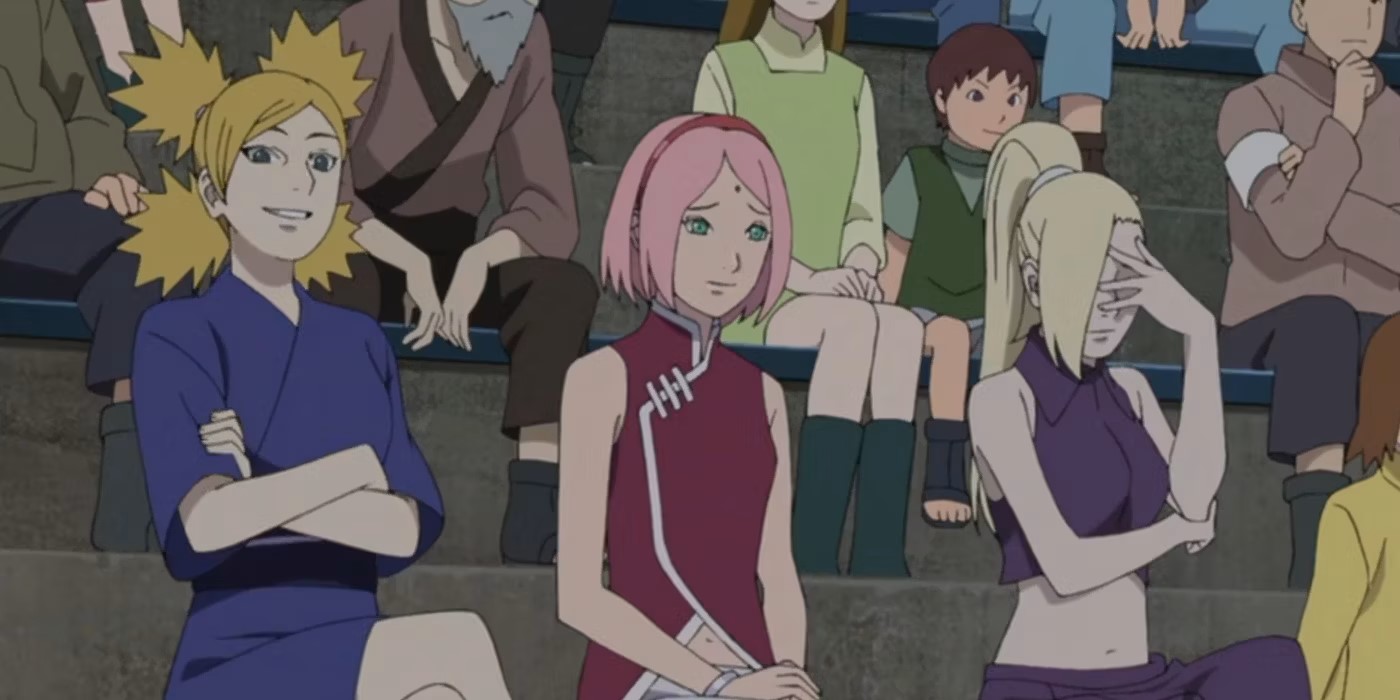
While there has been praise for the story as it is presented in the manga, there has also been speculation as to how the Boruto anime will handle the Boruto: Two Blue Vortex part of the manga, which is set after the time skip that Boruto opened on. The current run of the Boruto anime has ended, with no news from its studio regarding a continuation, reboot like Full Metal Alchemist: Brotherhood, or renewal. Leaks suggest that the anime will be delayed until 2027 or 2028, though it is important to understand that leaks are not necessarily fact. 38 The contribution that Boruto of ongoing enthusiasm brings for the Narutoverse is examined next.
Contribution of Ongoing Enthusiasm for the Narutoverse
Despite the mixed reception, it is clear that Boruto keeps enthusiasm for the Narutoverse alive. Fans are curious to know how Boruto handles his trials differently than his father, and the opening to the anime with the flashback as previously mentioned, intrigued people. In addition to this, people are curious to see how Boruto ended up in conflict with Kawaki.
As mentioned previously, learning more about the Otsutsuki creates a continuation of understanding how the Narutoverse came to be. It further answers what in that world is left to fight, when Naruto and Sasuke both became arguable legends in their own rights. It is interesting to see how Boruto and his friends show the potential to surpass that in the anime. Also, the idea of the Will of Fire continues within Boruto and suggests that the Narutoverse will carry on past Boruto and his story, making a lasting impact on fans of Naruto and its sequel.
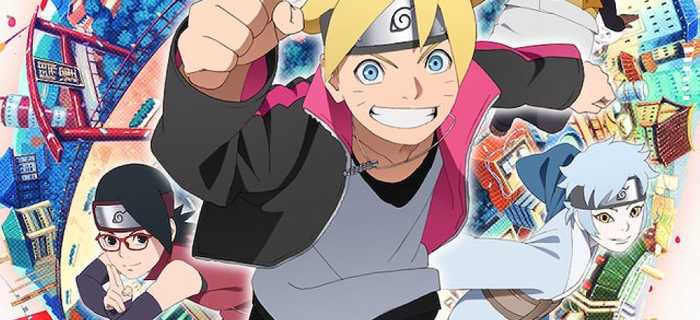
Boruto‘s anime caused some tension within the Naruto fanbase. Despite that, there is more good in the story and the show that outweighs that tension. While the anime’s future is up in the air for now, it is unlikely that Boruto killed Naruto. However, to some, the sequel does unnecessarily extend an already finished story that did not need a sequel. Boruto does tell the story of what peace looks like after war and rebuilding with themes that are relevant to younger generations, and, in that sense, Boruto‘s anime is kind of like the mirror image of Naruto, which is important in its own right.
Works Cited
- Kishimoto, M. (2002, October 3). Naruto. IMDb. https://www.imdb.com/title/tt0409591/ ↩
- Kishimoto, M., Takeuchi, J., Flanagan, M., & Higgins, K. (2009, October 28). Naruto: Shippûden. IMDb. https://www.imdb.com/title/tt0988824/ ↩
- Priyanko. “I had done everything I wanted to”: Masashi Kishimoto Had to Make a Deal to Continue Naruto’s Saga With Boruto After Refusing to Get Involved. (2024, April 6). Fandomwire.com. https://fandomwire.com/i-had-done-everything-i-wanted-to-masashi-kishimoto-had-to-make-a-deal-to-continue-narutos-saga-with-boruto-after-refusing-to-get-involved/ ↩
- CallsignLancer. (2016, December 17). New Boruto anime announced for April 2017. https://www.reddit.com/r/anime/comments/5it7fx/new_boruto_anime_announced_for_april_2017 ↩
- Boruto: Naruto Next Generations. (n.d.). Boruto Wiki. Retrieved May 22, 2024, from https://boruto.fandom.com/wiki/Boruto:_Naruto_Next_Generations#Anime ↩
- Konohagakure. (n.d.). Narutopedia. https://naruto.fandom.com/wiki/Konohagakure ↩
- Fang, S. (2024, May 2). Boruto Cast and Character Guide. CBR. https://www.cbr.com/naruto-boruto-cast-and-character-guide/ ↩
- Himawari Uzumaki. (n.d.). Narutopedia. Retrieved June 7, 2024, from https://naruto.fandom.com/wiki/Himawari_Uzumaki#:~:text=She%20is%20also%20considerate%20about ↩
- The Chunin Exams Resume. (n.d.). Boruto Wiki. Retrieved June 7, 2024, from https://boruto.fandom.com/wiki/The_Chunin_Exams_Resume ↩
- Allied Shinobi Forces. (2017, January 21). Narutopedia. https://naruto.fandom.com/wiki/Allied_Shinobi_Forces ↩
- Akimichi Chocho. (n.d.). Japanese Anime Wiki. Retrieved June 7, 2024, from https://japaneseanime.fandom.com/wiki/Akimichi_Chocho ↩
- Green, M. (2024, May 27). Boruto’s Sister Just Proved Why Naruto Is a Terrible Dad. ScreenRant. https://screenrant.com/boruto-himawari-kurama-naruto-didnt-know-bad-dad/ ↩
- Sasuke and Boruto. (n.d.). Narutopedia. Retrieved June 7, 2024, from https://naruto.fandom.com/wiki/Sasuke_and_Boruto ↩
- Orochimaru. (n.d.). Boruto Wiki. Retrieved June 7, 2024, from https://boruto.fandom.com/wiki/Orochimaru#New_Era_(Plot) ↩
- Sakura Haruno. (n.d.). Boruto Wiki. Retrieved June 7, 2024, from https://boruto.fandom.com/wiki/Sakura_Haruno ↩
- Hinata Hyuga. (n.d.). Boruto Wiki. Retrieved June 7, 2024, from https://boruto.fandom.com/wiki/Hinata_Hyuga?so=search#New_Era ↩
- Boruto Uzumaki. (n.d.). Boruto Wiki. https://boruto.fandom.com/wiki/Boruto_Uzumaki ↩
- Himawari Uzumaki. (n.d.). Boruto Wiki. Retrieved June 7, 2024, from https://boruto.fandom.com/wiki/Himawari ↩
- Sarada Uchiha. (n.d.). Boruto Wiki. Retrieved June 7, 2024, from https://boruto.fandom.com/wiki/Sarada_Uchiha#Personality ↩
- Mitsuki. (n.d.). Boruto Wiki. Retrieved June 7, 2024, from https://boruto.fandom.com/wiki/Mitsuki?so=search#Chakra_and_Physical_Prowess ↩
- Metal Lee. (n.d.). Boruto Wiki. Retrieved June 7, 2024, from https://boruto.fandom.com/wiki/Metal_Lee?so=search#Personality ↩
- Intergenerational conflict. (2019, May 5). Wikipedia. https://simple.wikipedia.org/wiki/Intergenerational_conflict ↩
- Stephenson, C. (2021, December 19). Boruto: 10 Ways Boruto Is Nothing Like Naruto. CBR. https://www.cbr.com/boruto-naruto-differences-nothing-alike/ ↩
- Contributors to Narutopedia. (2024). Momoshiki Ōtsutsuki. Narutopedia; Fandom, Inc. https://naruto.fandom.com/wiki/Momoshiki_%C5%8Ctsutsuki#K%C4%81ma ↩
- Kawaki. (n.d.). Boruto Wiki. Retrieved June 7, 2024, from https://boruto.fandom.com/wiki/Kawaki?so=search ↩
- Kawaki Arc. (n.d.). Narutopedia. Retrieved June 7, 2024, from https://naruto.fandom.com/wiki/Kawaki_Arc ↩
- Konohagakure. (n.d.). Boruto Wiki. Retrieved June 7, 2024, from https://boruto.fandom.com/wiki/Konohagakure ↩
- Boruto:Naruto Next Generation|Kawaki vs Boruto by iEnniDESIGN on DeviantArt. (2022, February 14). Www.deviantart.com. https://www.deviantart.com/iennidesign/art/Boruto-Naruto-Next-Generation-Kawaki-vs-Boruto-906944374 ↩
- Contributors. (2024). Ōtsutsuki Clan. Boruto Wiki; Fandom, Inc. https://boruto.fandom.com/wiki/%C5%8Ctsutsuki_Clan?so=search ↩
- CuriousLad. (2021, July 8). Why OG Naruto Fans hate Boruto – or not (Discussion thread) [Online forum post]. Fanverse.org. https://www.fanverse.org/threads/why-og-naruto-fans-hate-boruto-or-not-discussion-thread.1234517/ ↩
- Bruce, A. (2018, September 20). 25 Boruto Fan Redesigns Better Than What We Got. ScreenRant. https://screenrant.com/boruto-fan-art-redesigns-better/ ↩
- n.d. (2024, May 27). Japan TV audience demand for Boruto: Naruto Next Generations [Review of Japan TV audience demand for Boruto: Naruto Next Generations]. Parrot Analytics; Parrot Analytics. https://tv.parrotanalytics.com/JP/boruto-naruto-next-generations-tv-tokyo ↩
- How well is Boruto received in Japan? A lot of what I see in America is they hate how some characters were just made a couple and how Sas… (2019). Quora. https://www.quora.com/How-well-is-Boruto-received-in-Japan-A-lot-of-what-I-see-in-America-is-they-hate-how-some-characters-were-just-made-a-couple-and-how-Sasuke-and-Naruto-were-nerfed-Is-this-also-how-other-countries-feel ↩
- UIEmiliano. (2024, August). What do fans in Japan think of Boruto? [Online forum post]. Reddit.com.https://www.reddit.com/r/Boruto/comments/15ia6ct/what_do_fans_in_japan_think_of_boruto/ ↩
- MomoshikiUzumaki. (2022, July 24). Why do you hate Boruto as a character and as a series? [Online forum post]. Fanverse.org. https://www.fanverse.org/threads/why-do-you-hate-boruto-as-a-character-and-as-a-series.1264659/ ↩
- Ali, Z. (2023, December 5). Boruto Filler List – Which Episodes To Skip. ScreenRant. https://screenrant.com/boruto-filler-list-episodes-skip/#:~:text=With%20a%20whopping%2070%20percent ↩
- LionIgor2. (2020, July 17). I don’t understand the hate against Boruto [Online forum post]. MyAnimeList.net. https://myanimelist.net/forum/?topicid=1852575 ↩
- Nazru, A. (2024, February 16). Boruto Anime Allegedly Delayed Until 2028; Fans React! – Animehunch. https://animehunch.com/boruto-anime-allegedly-delayed-until-2028-fans-react/ ↩
What do you think? Leave a comment.


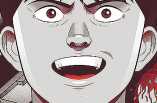
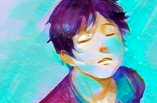
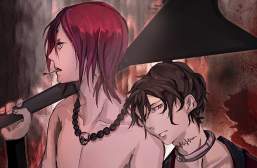
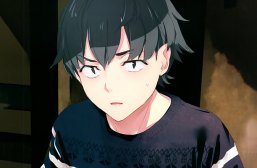
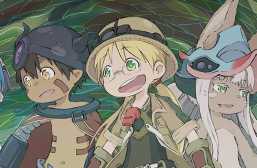
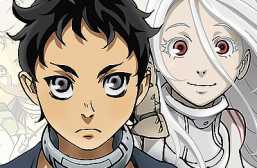
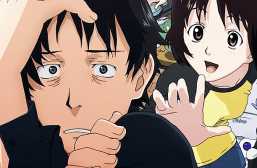
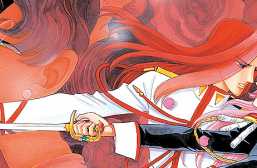
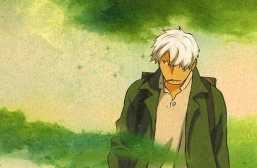
Such an undeserving sequel to a great story like Naruto. Yes it doesn’t deserve all the hate it gets but seems like it deserves most of it.
As someone who has watched the anime, I hated it and still do. Especially everything with the otsutsuki, because I hate them in general and they just make the og canon feel weird.
Not enough people understand Boruto or his character but he is actually a very relatable character and when you think about it Boruto is the exact same as all of us; so many people are willing to take the easy way out if it means that they achieve the same results quicker and with less effort though that might not always mean cheating, so many people give up on something as soon as they realise its going to be hard work, there were many times when you and I have probably wanted to try something but saw that it would be difficult and take too long so gave up, and pretty much everyone sees things from their point of view but neglects to see things from other people’s perspectives we get angry at someone if they don’t do what we want but we never stop to consider the why and may just think they’re being unreasonable or idiotic.
It’s ironic how people get on Boruto’s case for doing things I can guarantee that they do themselves. Boruto is actually an amazingly written character and is relatable done right people just don’t see that cuz they give up on Boruto before giving Boruto a fair chance and Boruto’s story about a boy who was a gifted genius and never had to work hard for anything and had no specific goals in life and just wanted to figure things out as they happened and had it all to begin with learning the true meaning of hard work, losing everything, becoming someone who would end his life for his goal of protecting those close to him and someone who would slowly start to gain back everything he had lost, is brilliant. And if you consider Boruto to be a brat then, by definition, you yourself are a brat.
Thank you for this point! I think that Boruto and Naruto were both kind of bratty until they had reasons not to be, but, I think it goes through a filter of “Naruto was acting like that because of X”, which doesn’t seem to exist for Boruto because “it wasn’t as bad for him”, when it looks like he’s about to go through worse than Naruto in that he loses his family, from my understanding, though I’m still catching up in the anime and the manga.
I guess not growing up with Naruto has given me a different perspective on things.
Boruto is so overhated for no reason. People need to actually read it and open their mind.
The worst thing about boruto manga is the fact that it is monthly. It’s so amazing but then the Cliffhanger hurts more because it’s going to be another month of my life until I get more. I wish he. It ends up being like 40 pages each chapter. Whereas with Naruto it was almost 16 to 18 per week. It does add to a different flow of the series overall. Everything seems like it happens so much quicker. That’s not a bad thing though, it’s just a different pacing. Story-wise it’s amazing.
Monthly schedules sucks for us, but we gotta think about the artists. Weekly schedules for manga artists were hell.
I have a lot of hope for the Naruto franchise.
I would like boruto if it wasn’t connected to naruto but because it makes the entire series of naruto pointless I could care less about it. Naruto should’ve stayed single and been hokage.
It doesn’t make it pointless though so this already falls flat. The “Naruto staying single” statement gotta be one the most insufferable fanboy thing to say to come of an already annoying fandom who d ride Naruto wholeheartedly.
As someone who watched the anime each week and read the manga every month, you hit the points about the series.
Thank you!
The people who hate on Boruto stating he was imperfect as a child are the biggest hypocrites in my opinion because nobody is perfect, especially not a kid, and the growth of this flawed character was my reason I got invested into the series. He’s a very grounded character and relatable to the average modern day kid.
Agreed. Boruto’s character development is extremely underrated and he’s now become probably one of, if not, my favourite character of all time.
I love Boruto’s character and it’s a shame he doesn’t get enough credit.
Definitely one of the best characters in the entire Naruto franchise.
Boruto’s arc is very well written in the movie/first arc.
I love how almost every character in boruto can shoot ki blast and blow up planets 15 times over.
Boruto did what dragon ball z couldn’t it passed on the torch.
I think my biggest problem with Boruto is that you can’t read the manga without missing a lot of development with the characters. It’s almost like the manga is a free trail where the anime is the full suite.
That makes sense! I think I’ll be able to have context for the manga after starting the anime.
I was mad at the Buroto anime, but I guess I will admit that it’s pretty good. I just hope that they put wisdom in Boruto like they did with Naruto, and not break the previous goal and morals of Naruto.
The next-generation cast is uninteresting except for Sarada.
I think boruto is doing well rn, and it’s definitely not me alone, im not gonna force someone to watch it because the anime is absolute dog water. However, im gonna recommend the manga. The manga of both “Boruto: Naruto Next Generations” and Boruto: Two Blue Vortex” is actually good. The anime brought it down with the animation and the filler, but I don’t think that should cast a shadow over the mangas.
It is really hard to accept the truth of the fact that Boruto is just average or just above average as a Manga/Anime.
Speaking as an ex-boruto hater here. I truly hated boruto, but the truth is, i didn’t like seeing naruto as a side character, of course i grew up and gave boruto a chance. And boy am i glad i did. I love the boruto series now you wouldn’t even believe me just how much i used to criticize it.
I believe Boruto himself to be a dry underrated character with him bringing something new to the table as far a perspectives in this world and he’s honestly not as whiny as people make him out to be and he does have some cool qualities and unique aspects to him. It’s also nice to see Naruto himself and everyone else from the original in all new kinds of roles where they’re clearly more mature and in their adult phases where Naruto’s achieved his dream as a Hokage but is now needing to learn all sorts of new things to life like how to properly take on the role of a father along with Boruto accepting his Dad’s role in life and seeing how integral he is even if he can’t always be physically there for him.
The series also just has so many great mysteries to it, like what the roles of different characters are, what that could lead into in the future and what really does lead to the huge opening we saw in the beginning.
Those are fair points!
The anime adaptation is kinda weird, in that it’s true that most of the filler is uninteresting but filler does gives weight and a real sense of consequence to the things that happen in the manga. It feels more like the manga is a cut summary and not the source material.
Interesting! I’ve been thinking about going back to reading the manga so that I can start Boruto: Two Blue Vortex, and I feel like I will be better equipped for what to expect now.
Exactly ! I personally liked the filler arc where mitsuki ran away from the village and he became one of my favorite characters after it.
Yeah, I really ended up liking Mitsuki after that, too. And, a lot of the side characters really got highlighted in ways that happened a lot later in Naruto, I feel.
Exactly!
The best part of boruto is when it ends. 🙂
I absolutely hate Boruto fight scenes. They lack strategy and thought. The taijutsu is repetitive, dull and boring. The characters always engage in taijutsu by boring headfirst charges.
The explanation for always relying on taijutsu, is the bullshit jutsu absorbing powers everyone has. Which are necessary because the writers wrote themselves into a corner in the war arc, by making the main characters so god damn powerful that their basic jutsus would level entire regions if they really tried to win a fight.
I always hate it when writers make someone too powerful to raise the stakes, and then have to come up with a cheap bullshit excuse to nerf them or remove them from the story.
In original naruto, the first part and early shippuden, fights were interesting since characters most often would not just DBZ style fly at eachother to exchange the most boring fistfight. They would carefully decide which cards of their toolkit to reveal and when. They would consider their options for dealing with each reveled power that the enemy had. Sometimes taijutsu was not even a part of the fight, if neither combatant had no need to use this specific tool.
Sometimes one combatant would realize their wincondition is to close in and push the opponent in taijutsu, especially early on, when weaving handsigns was a big part for using jutsu. Even the most powerful kage level fighters had to weave 1-3 handsigns for each jutsu. For example, in the Lee vs Sasuke fight, Lee simply does not give Sasuke room to weave signs for his fire style techniques.
Chidori is a great example of this depth. Originally in part 1 of Naruto, chidori required weaving multiple handsigns to execute. The reason why it “required” a sharingan to use effectively, was because you could not simply expect to weave those signs while already close to a target, as he would simply destroy you in taijutsu. It was a melee range jutsu, that had to be activated at range, but which also gave away your position due to the amount of light and noise it generates. The only way to reliably land this jutsu, is to dash straight for the enemy after activating the jutsu. This sort of maneuver in early Naruto, would be considered suicidal, unless you had some sort of an edge which would give you heightened perception and ability to react.
So in essence, either the sharingan, or maybe sage mode could also work.
This sort of depth is just completely missing from Boruto. Every single character just rushes at their target in a straight line, sharingan or not.
I really really appreciate your opinions. As someone who enjoys Buroto and Naruto.
Boruto absolutely does not deserve all the hate it gets at all, honestly, most of the time, it feels like people jumping onto the bandwagon of hating on it just for the attention. No, the series is not perfect by any means and it’s nowhere near as good as Naruto itself, but I can’t begin to count the amount of things it has done right and what it’s made me so unbelievably excited for. Thank you The Artifice for such stellar content.
Yeah, I feel like it has addressed things in ways that were not expected, for sure. Thank you for the compliment!
I’ll never be Boruto’s biggest fan, but several criticisms that I’ve had with the series were addressed and in ways that I never heard before, and made me contemplate on how fair I’ve been to this series moving forward.
The notion that Boruto is a bad character stems from the hundreds of episode pre momoshiki about Boruto constantly complaining about his dad. I’m fine with a single arc but the way the anime handled his character completely butchered my feelings for him. It’s one thing to say that a character is in the right but it’s another to convey it through the medium. Of course we know goku needed to train to get stronger but we don’t literally spend every waking moment with him training.
i dont hate boruto. it took me a while to get around to liking it and at times i was struggling really bad to enjoy the show though i really wanted to. however, i can confidently say that the latter half of the show has pretty much done it for me. i have finished the anime and read the second half of the boruto manga (along with two blue vortex) and i have come to the conclusion that waiting for the series to finish would be better than consuming it monthly as it is very slowly paced and consuming only manga or only anime content can ruin the experience a bit.
Interesting! I’ve not really been keeping up with the manga and chose to start with the anime, personally, and, since that’s done, I’m thinking about finishing it and then starting the manga, so, I guess I had a feeling to wait to make sure I had some backlog to work through.
At the end of the day I’ll just say Boruto had some pretty bad executions, thank God that Two blue vortex is trying to shapen those executions better.
I like Bourto just as much as I like Naruto I’m kind of 50-50 on both of them. I understand why people are so split between the two.
You have to be a true Naruto fan to like boruto. I loved every second of it, the good and bad.
Boruto isn’t without its flaws, same with Naruto. It’s a little scary that people only look at these flaws, and use them to define their entire outlook on the series. Its been over 8 years and I still hear the argument of “Boruto is an ungrateful brat, he hates his father and is a disgrace to the series” I’m not gonna force people to like, enjoy, or even watch/read the series. But it’s baffling that people judge the whole series based on the first arc. Another thing that bothers me is people’s dismay over the Naruto and Sasuke “nerfs” later in the series. Yet another argument that’s used by people who hate/dislike the series, saying it should’ve never happened, etc. I guess people aren’t allowed to get caught off guard. I’ve enjoyed the series since the start of OG Naruto, and read the manga of part one, as well as the anime. My only major gripe with the series was the absolutely horrible mismanagement of Studio Pierott’s schedule. I’m glad they’re fixing their shit, and part two will (apparently, and hopefully) come out seasonal. If for whatever reason part 2 isn’t on a seasonal schedule, and is filled with way too much filler, my faith will diminish for the series (at least regarding the anime, the manga is great IMO)
I just started watching Boruto, just the manga canon episodes, and I’m really liking it. It’s different than Naruto, which oddly ties into the theme of the show. Boruto being compared to Naruto, which reminds me of the metatarsal theme of Naruto being better than expected. It’s a cool trope the shows have established. One thing I wish Boruto did was when Boruto was shamed after the Chunin Exams I wish they had let that shame settle for longer before he redeemed himself.
It would have really let the feeling of being a “loser” hated by the village feel real and would have made a much stronger impact on the character and the viewer. The fight with Momoshiki was all out awesomeness. It was so great to see Naruto and Sasuke fighting together at near full power. And their relationship has gotten to such an amazing place. To see how they trust each other and love each other is so wonderful to watch. Especially after watching the entire Naruto + Shippuden shows. There’s a gravity that can only be experienced by following their stories from beginning to end and the payoff is perfect. I just finished watching the Momoshiki arc and can’t wait to see how the show progresses. Great so far.
Everything is canon apparently with the fact Kishimoto works on the fillers
A lot of the anime filler arcs expand on the manga material. There is some anime canon arcs I do recommend. Not all of them tho.
Naruto is my favorite anime of all time but it should’ve ended after the Pain Arc. Also, Boruto is trash.
It’s cause anime takes time and studio wants money so had to make fillers.
I’ve been reading Naruto weekly since 2008, and when Boruto came out, I said it along with Black Clover where everything I kinda wished Naruto was. I even found Boruto more relatable.
Naruto had one of the worst upbringings of any anime character. Man was taught he was a nobody and was also somehow simultaneously hated by everyone. Him being a perfect father really wouldnt make any sense.
I do love how they made naruto flawed in this way. You see he still has scars from the lack of intimacy and love a family would have given him. He always wanted to be acknowledged, a family wasnt even a realistic goal in his mind. I feel like the idea that he could even be a father probably hit when he actually became one.
His love for boruto created a child with the self esteem to stand up to him. He defends his mom and sisters from narutos avoidant tendencies, something that probably made the fans hate him.
Really though, hes the only kid brave enough to stand up to Hokage. That makes Boruto special, i dont believe for a moment that his strong will isnt something naruto isnt grateful for. Is he an ass to his dad? Yeah, because his dad hasnt fully grown up yet. His dad is learning too. Its a cool dynamic.
Thanks for your thoughts! I really like that dynamic between the two of them, and I think you made great points!
Naruto : who gained everything
Boruto : who loses everything
Boruto hate is corny in 2024. People should start reading the manga.
All i can say is that boruto is a well written character than Naruto.
When it comes to villains, Boruto’s antagonists lack the depth that fans of the original Naruto series resonate with. The new villains are one-dimensional, simply evil without compelling backstories or reasons for their actions. characters like Momoshiki, whose motives were clear due to their Otsutsuki origins, the lack of complexity makes it challenging for fans to connect.
My main issue with Boruto are the villains. None of them are interesting.
Manga is good, but the Buroto anime is i disliked it because of the so much filler.
I don’t like boruto but I’m glad it has fans.
the level of power in the anime at least definitely went through some crazy changes and not for the better of logic
Hey, I really appreciate the depth you brought to this topic I suggested—it’s clear a lot of thought went into it! Personally, I’m still more of a fan of the original Naruto and decided not to keep up with Boruto. I mean, I don’t mind that Boruto exists (lol), but I’m not too keen on some of the directions it took, especially with Hinata and Sakura. Then again, the female characters have always been a bit problematic, right from the start, unfortunately. But hey, I get why people enjoy it! 😊
Thanks! I tried to do something with everything you suggested in terms of points to cover! I really don’t like how Sakura and Hinata were in the Boruto anime, either, and, there’s a lot of comparisons being done to Sakura from the Naruto manga versus how the anime portrayed her, and, due to that, the anime actively made Sakura a worse, unlikeable character. I stopped watching the anime right after Baryon Mode–my heart couldn’t take it–but, I am considering at least finishing the anime and then seeing what the manga has to offer, because I do like seeing how things are progressing in the next generation. I do find Naruto’s struggles more relatable, and I suspect that has something to do with the generation it was made for, whereas I view Boruto as being likely much more relatable to the generation after mine.
I really liked the breakdown of differences between Naruto and Boruto, especially the part that highlights that Boruto’s decisions don’t have to deal with the weight of the world. It was a bit long, but I enjoyed the discussion on how character development happens so fast in Boruto. Its hard to care about characters other than Boruto